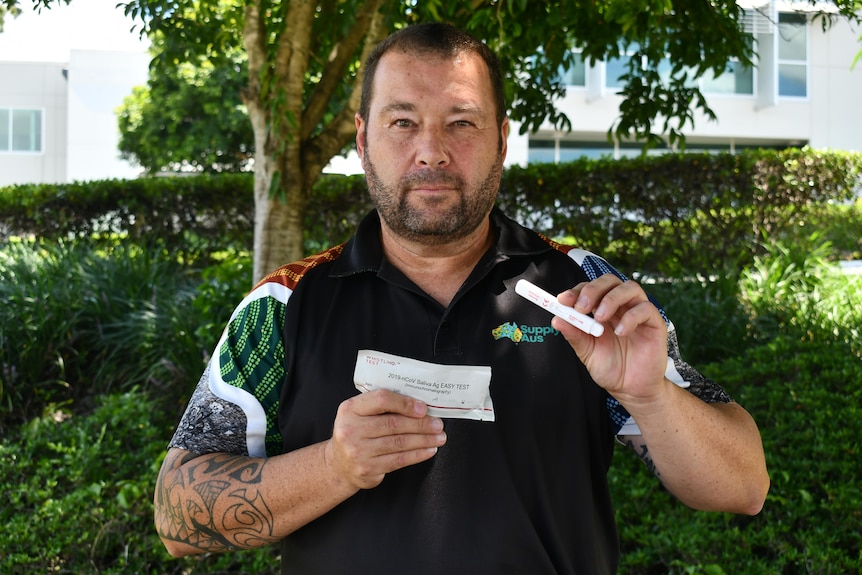Extract from ABC News
A public health specialist says he told a group of parliamentarians, including several Coalition members, back in August that Australia's PCR-testing system was destined to buckle and that the government should immediately start planning for the use of rapid antigen tests.
Key points:
- Public health specialist Henning Liljeqvist says he gave a presentation to the Parliamentary Friends of Medicine group in August 2021
- He says he warned the group that the PCR-testing system would soon be overwhelmed
- Dr Liljeqvist says he advised the group that the focus needed to shift to rapid antigen tests
Dr Henning Liljeqvist said he, infectious diseases expert Professor Mary-Louise McLaws and Pathology Technology Australia chief executive Dean Whiting provided an hour-long presentation to the Parliamentary Friends of Medicine group on August 25, 2021.
ABC's 7.30 understands several Coalition and Labor MPs were in attendance.
Dr Liljeqvist said he warned members of government that the PCR-testing system would soon "not be able to cope" with Australia's growing case numbers and the government should quickly shift to rapid testing.
"Not only could [RAT supply issues] be predicted, it was predicted," Dr Liljeqvist said.
"I'm pretty confused because all we could see was a head-in-the-sand approach from government … I don't know why they protected the PCR-testing system for so long and it's been detrimental to us that that system was kept longer than it could cope."
Health Minister Greg Hunt has been a long-time supporter of rapid antigen tests but he was not at the presentation.
A spokesperson for Mr Hunt said “rapid antigen tests for COVID-19 used at the point of care when overseen by a healthcare professional have been available in Australia since August 2020".
"The government has been an early adopter of RATs and has been purchasing RATs since August 2020, which have been distributed to residential aged care facilities (RACF) across the country through the national medical stockpile," the spokesperson said.
The spokesperson also said the minister supported a range of testing methods.
"While RATs are a quick and efficient way of testing for COVID-19, they are not as effective as PCR testing," the spokesperson said
“The combination of having self-tests, point-of-care tests and PCR tests available is the most effective."
However, Labor MP Mike Freelander, who co-chairs the group, said members of the government seemed receptive to the presentation from the health professionals but then did not act on what they heard.
"The government and the Department of Health have been very slow to take up rapid antigen testing," Dr Freelander said.
"Both the government and the Department of Health have been too focused on the negatives, rather than the positives and enormous benefits, that rapid antigen testing offers."
Take-home tests were approved in the US in November 2020 and were approved by the UK regulator a month later.
However, the Therapeutic Goods Administration (TGA) did not approve the sale of take-home tests in Australia until November 1 last year.
So far, the TGA has approved 21 brands of rapid tests for home use.
Unable to get rapid tests approved
But many within the home-test industry say securing TGA approval is still too difficult.
Adam Williams, the chief executive of SupplyAus, says the rapid test kit that his business is importing from China still hasn't received TGA approval.
He says he currently has five million tests in storage in China that can't be sold because of the delay.
"The factory has sold over 50 million of these whistle tests globally," Mr Williams said.
"There's never been a recall. There has never been an impact — their orders keep flowing to everywhere else on the planet."
Brisbane-based SupplyAus is an Indigenous-run business. It hopes to sell some of the tests to remote Aboriginal communities for just $5 each.
"There's communities that are just kilometres away from any help … it would keep the community safe," Mr Williams said.
"And we really can't bury them with cost, they get stung enough from with the cost of meat to milk to bread. I don't think they should be paying $15-plus for these tests."
Mr Williams also says the process to attain TGA approval is prohibitively expensive.
"We're probably close now to about $85,000 in consulting fees … it's really exhausting. When, daily, I will get phone calls from Aboriginal communities or Aboriginal health centres saying, 'Please, we need help'."
A spokesperson for the TGA told ABC's 7.30 its approval process was not difficult.
"The TGA process for rapid antigen tests is significantly streamlined and transparent for applicants, with extensive support and guidance offered by TGA staff every step of the way," the spokesperson said.
"It is not slow nor expensive, given the time taken for the regulatory reviews of data submitted and the significant 'hand-holding' that is occurring."
The TGA spokesperson said approval could, in some case, acquired within three days.
Watch this 7.30 story on ABC iview.
No comments:
Post a Comment